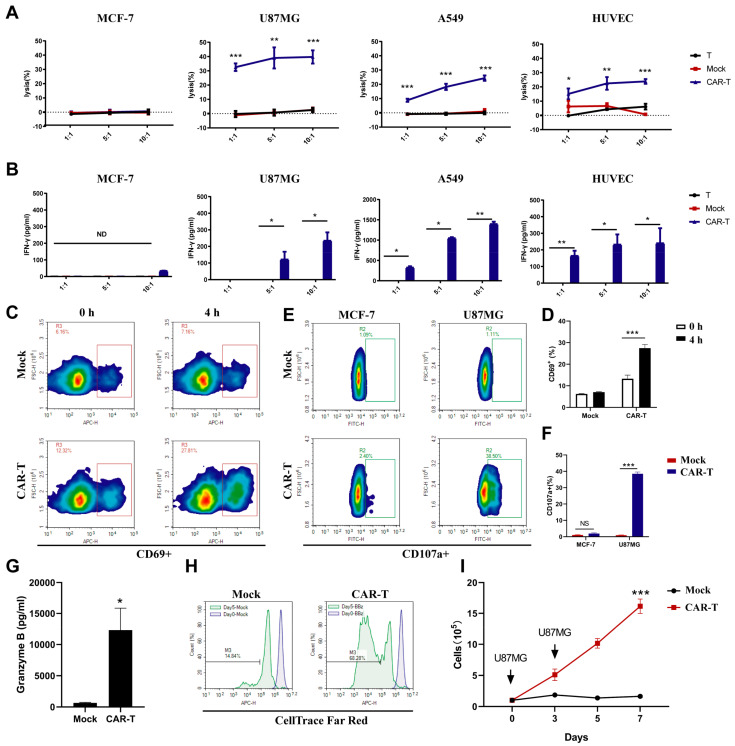Figure 3.
Evaluation of EDB-FN-targeted CAR-T-cell reactivity to cancer cells. (A) In vitro cytotoxic activities of EDB-targeted CAR-T-cells. Primary human T-cells transduced with the indicated lentiviral vectors were incubated with the cells with different EDB-FN expression levels at various E:T ratios for 24 h. Cell lysis was determined using an LDH assay. (B) In vitro IFN-γ production by EDB-targeted CAR-T-cells in the presence of tumor cells. EDB CAR-T-cells were incubated with cancer cells with different EDB-FN expression levels at various E:T ratios for 24 h. Culture supernatants harvested at 24 h after coculture were assayed for IFN-γ. (C,D) The antigen-specific activation of EDB-targeted CAR-T-cells. U87MG cells were co-cultured with mock or CAR-T-cells for 4 h. The CD69 marker was detected by flow cytometry. (E–G) The expression of perforin and granzyme of EDB-targeted CAR-T-cells induced by antigen. U87MG cells were co-cultured with mock or CAR-T-cells for 24 h. The CD107a marker detected by flow cytometry and granzyme B detected by ELISA. (H,I) The proliferation of EDB-targeted CAR-T-cells. (H) Mock and CAR-T-cells stained with CellTrace and U87MG cells were co-cultured, and the fluorescence intensity of cells was detected by flow cytometry on Days 0 and 5. (I) T-cell proliferation under repeated antigen stimulation; arrows represent stimulation using U87MG cells on Days 0, 3, 5, and 7. (F) Cell numbers were counted on Days 0, 2, 5, and 7. Data are representative of three independent experiments. Datapoints reflect the mean ± SD of triplicates (* p < 0.05; ** p < 0.01; *** p < 0.001; two-tailed Student’s t-test).

